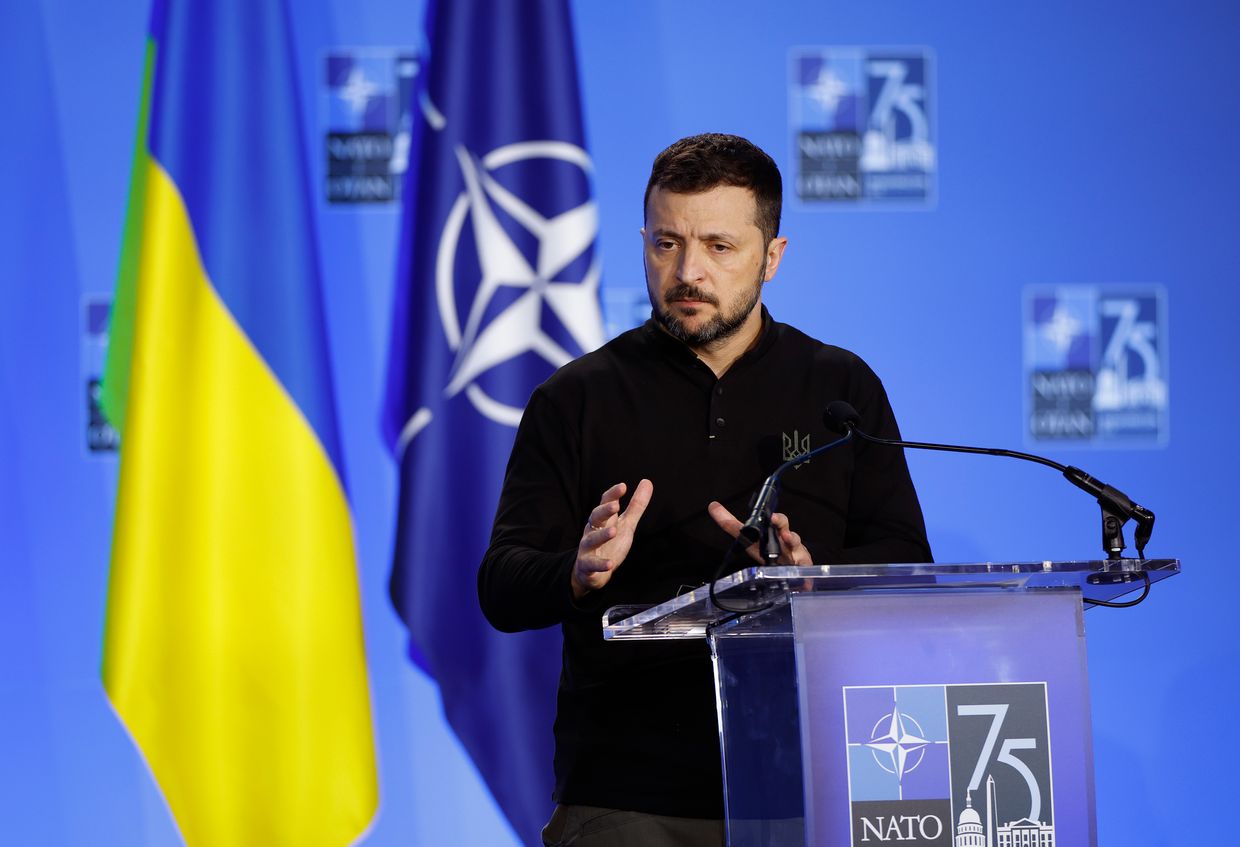70% of Ukrainians support 'West German' model for NATO accession, survey shows

Some 70.3% of Ukrainians are in favor of their country's gradual accession into NATO in a model resembling the entry of West Germany, according to a survey by the Kyiv-based New Europe Center published on Dec. 10.
A key difference is that the invitation would encompass the entire Ukraine, but the alliance's defensive "umbrella" would extend to the occupied territories only after their future liberation.
Talks about a possible post-war security structure grew increasingly relevant as U.S. President-elect Donald Trump showed reluctance to maintain long-term support for Ukraine and pledged to push both sides to the negotiating table.
As Russia holds the upper hand on the battlefield and the prospects of liberating occupied territories militarily appear slim in the near future, NATO accession pathways resembling that of West Germany begin to gain traction both in the West and Kyiv.
West Germany entered the alliance in 1955, with the territories of East Germany joining only after the country's reunification in 1990.
The growing difficulties are also reflected in the New Europe Center's survey. While the majority of Ukrainians remain distrustful of Russia and are averse to making concessions, the latter indicator has decreased in comparison to last year.
At the same time, the Ukrainians are reluctant to enter talks with Russia without security guarantees, believing that a ceasefire would simply give Moscow a chance to recover and launch another war.
According to the poll, 64.1% of Ukrainians do not believe that talks with Russia are worthwhile without appropriate security guarantees by the West. In comparison, 30% favor negotiations without preconditions, believing Ukraine does not have the resources to sustain a war of attrition.
Some 31.3% of respondents consider the development of nuclear weapons — a step rejected by Kyiv — to be the most effective security guarantee. Only a slightly smaller number — 29.3% —see the accession to NATO as the most optimal course. Only 6.4% of Ukrainians have trust in the possible deployment of European peacekeepers in Ukraine.
President Volodymyr Zelensky said on Dec. 1 that if Ukraine were to join NATO, the alliance's Article 5 collective defense principle may not apply to Ukrainian territories facing active combat. This marked a notable shift in Ukraine's rhetoric, which previously insisted on fully restoring territorial integrity as a precondition for a successful peace settlement.
More recent statements show a willingness to temporarily forego military liberation in the occupied territories for security guarantees, namely NATO membership. Zelensky said certain regions, like Crimea, might have to be liberated through diplomacy.











